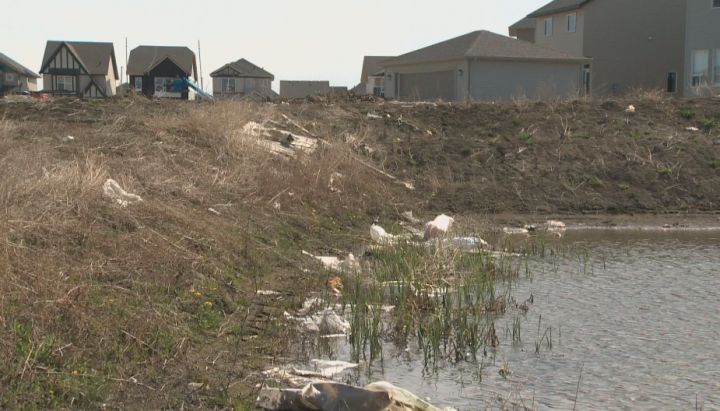The City of Edmonton will be taking a hard look at litter this year, and it will do so in more places than previous years.

The litter audit, which started in 2007, will cover 140 new locations in 2018. Previous audits have looked at the same 123 sites since 2009.
READ MORE: Edmontonians littering less, except on the Yellowhead
“What we’re doing this time is being very targeted,” said Don Belanger, the program manager for the Capital City Clean Up.
“We’ve identified those locations where we are doing programming, where we are providing services and we want to make sure, even in the case of citizen complaints, the citizen complaints themselves are showing signs people are making the right actions work.”
Belanger said according to the 2017 audit on large litter, there has been close to a 75 per cent reduction in general litter in the last 10 years.
The audit involves counting litter at a site, identifying trends and pinpointing hotspots. It also includes identifying the types of garbage that are contributing the greatest amount of litter.
“We’ve identified things like cigarette packaging. Obviously, we see other brand products from quick-service restaurants that will be found on the ground and identified,” Belanger said.
“We do that to help us understand the type of litter the public and the citizenry are dropping on the ground. It also helps us identify who we should focus on and try to build partnerships with.”
This year’s audit will become the new baseline for audits in the future; previous audits had been compared to 2009.
“Due to the substantial increase in population growth, an influx of newcomers and demographic shifts with a rise in urban housing, this report no longer reflect the current realities in Edmonton,” reads a Negotiated Request for Proposal (NRFP) issued by the city last week.
RELATED: Edmonton residents focused on throwing out garbage
Belanger said this new baseline is critical.
“We now need to be looking and trying to measure more of a focused approach to where litter is happening and what sorts of things are being done to address it,” he said.
“It will help us plot and chart our course for the next two to three years in terms of the types of programs we’re going to offer, where we’re going to offer them, how we’re going to deliver them and what we’re going to be looking at for identifying what success looks like.”
The city said there were roughly 455 complaints about litter in 2016 and approximately 395 in 2017.
The litter audit takes place mid-August and is expected to cost $40,000. Last year’s audit cost approximately $32,000.
Belanger credits the increased cost to the city establishing a new baseline for the audit, which he said will require more work to lay out.




Comments